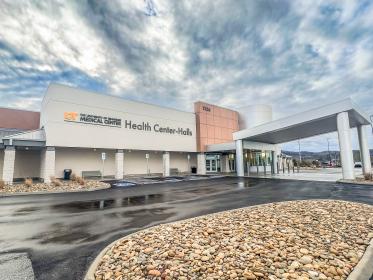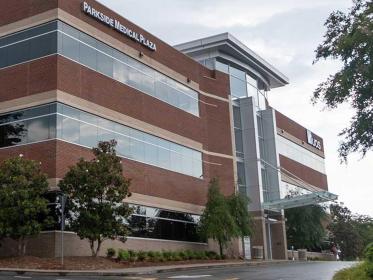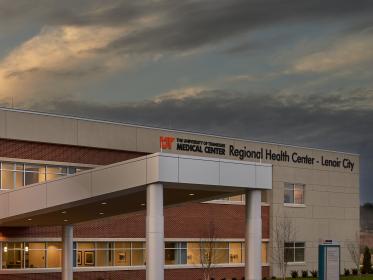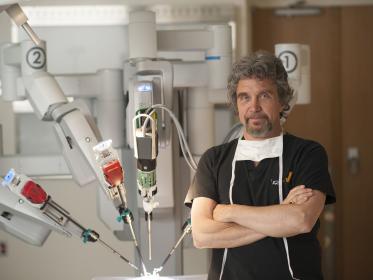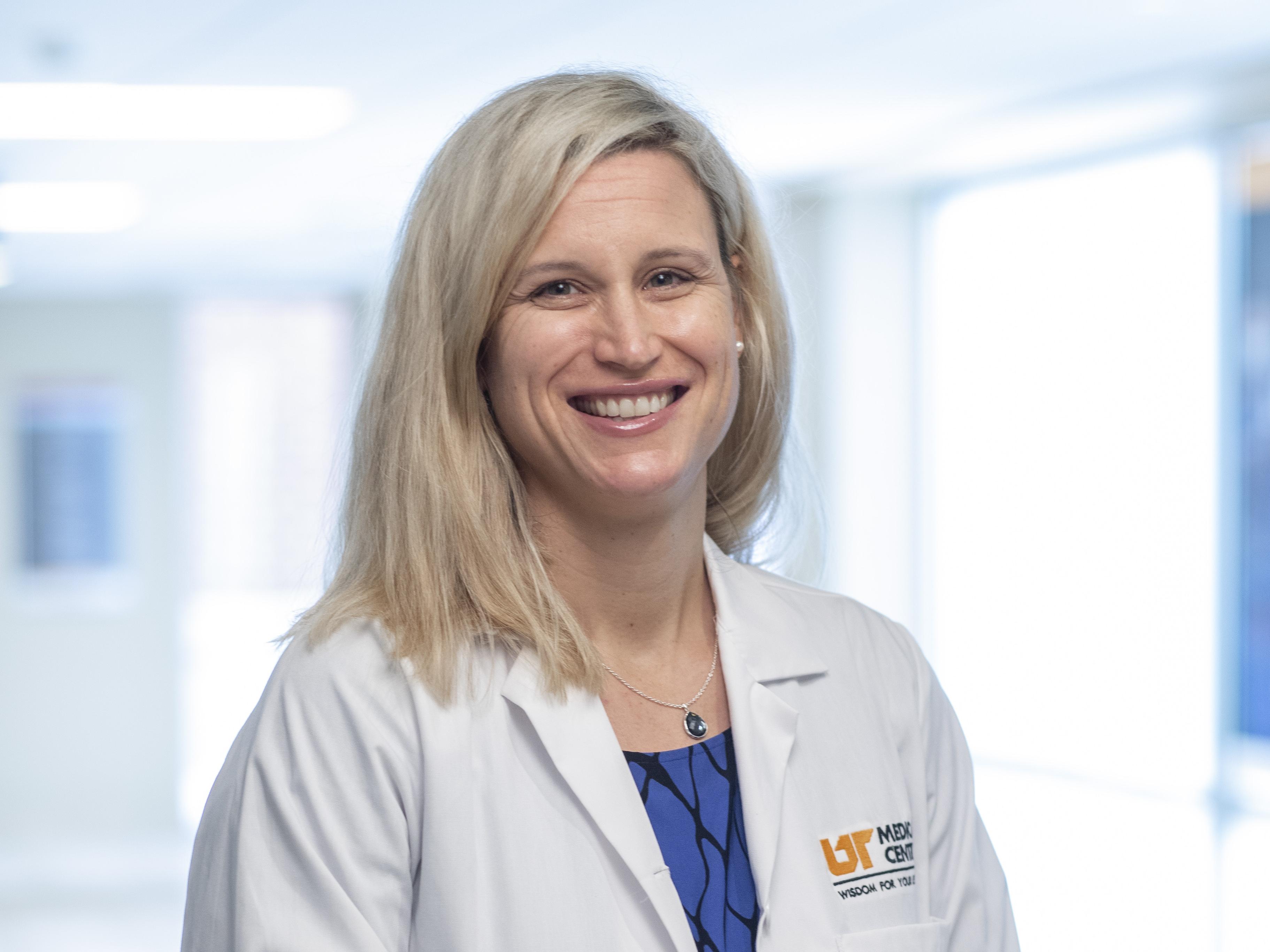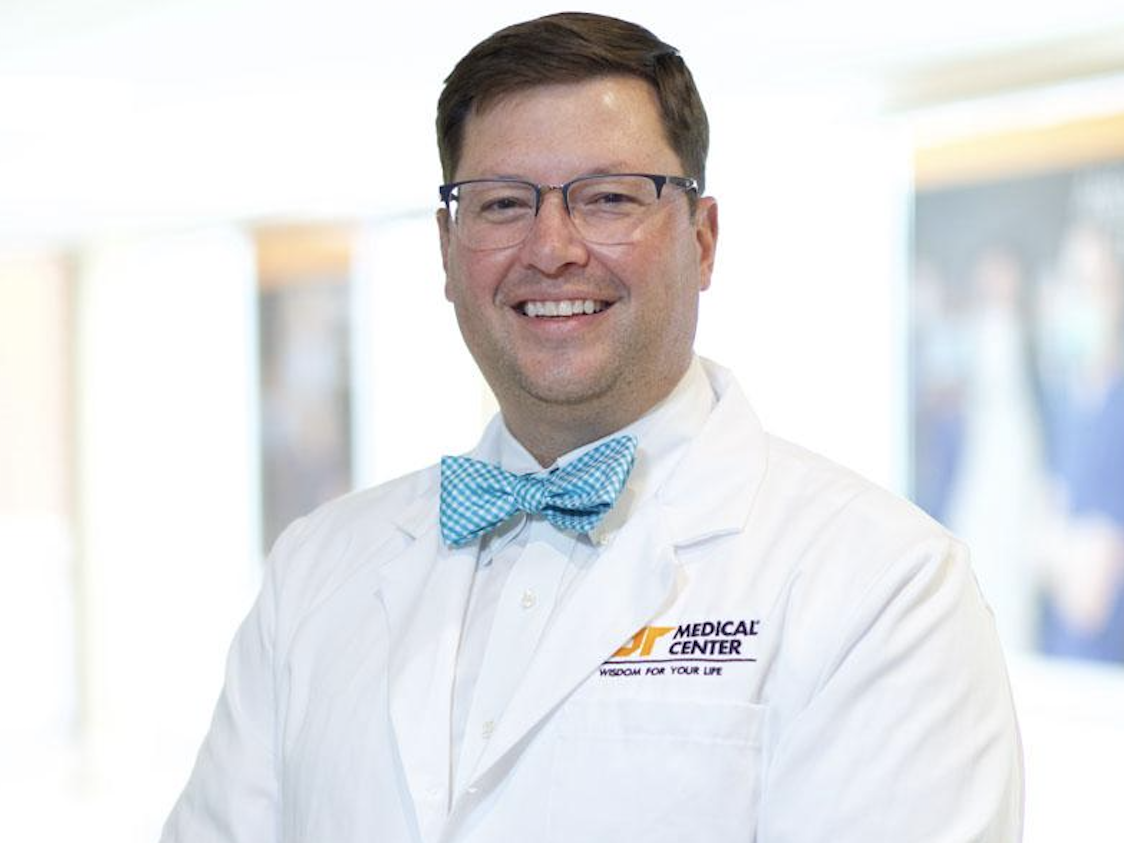Overview
University Gynecologic Oncology at The University of Tennessee Medical Center provides innovative and advanced medical and surgical treatment for patients coping with both precancerous and malignant gynecologic conditions, like ovarian cancer. Our multidisciplinary team of physician, nurses, therapists and support staff provides comprehensive care for the treatment of all gynecologic cancers and serves as a regional referral center for women with cancers of the female reproductive tract.
Your Care at the Cancer Institute
The Cancer Institute at The University of Tennessee Medical Center offers the broadest spectrum of cancer specialists and services to care for our patients with gynecologic cancers.
Women have access to advanced diagnostic and treatment options including surgery, chemotherapy, radiation therapy and clinical trials for the management of gynecologic cancers. No matter the type of procedure, the gynecologic oncologists at the medical center have the necessary knowledge and skills for optimal surgical outcomes.
Gynecologic cancer is a group of cancers that affect the female reproductive system including ovarian cancer, uterine cancer, cervical cancer, endometrial cancer and other female genital cancers. Gynecologic cancer is the fourth most common type of cancer in women, affecting approximately 1 in 20 women. In the United States each year, approximately 80,000 women are diagnosed with a gynecologic cancer.
The Cancer Institute offers a highly trained team of gynecologic oncologists trained at some of the top cancer institutions in the country, bringing the best care to patients in our region.
Patients are reviewed at our weekly multidisciplinary conference where surgeons, medical oncologists, radiation oncologists, radiologists, pathologists, genetic counselors, nurses and clinical trials coordinators gather to determine the best individualized treatment plan for each patient. This level of coordination ensures that patients are receiving the highest level of care, offering the best outcomes and quality of life.
Our comprehensive care teams also include a registered dietician, financial counselors, pastoral care, palliative care, and a social worker. Because gynecologic cancers can have a wide range of physical and emotional effects, we offer multi-dimensional services to strengthen mind, body, and soul for our patients and their families.
Diagnosing Your Ovarian Cancer
Ovarian cancer is cancer that starts in the ovaries. The ovaries are the female reproductive organs that produce eggs. Ovarian cancer is the fifth most common cancer among women, and it causes more deaths than any other type of female reproductive cancer.
The cause is unknown.
Ovarian cancer is rarely diagnosed in its early stages. It is usually quite advanced by the time diagnosis is made. Ovarian cancer symptoms are often vague. Women and their doctors often blame the symptoms on other, more common conditions. Ovarian cancer grows quickly and can progress from early to advanced stages within a year. Paying attention to symptoms can help improve a woman’s chances of being diagnosed and treated promptly.
If you have the following symptoms on a daily basis for more than a few weeks, you should see your doctor (preferably a gynecologist):
- Bloating
- Difficulty eating or feeling full quickly
- Pelvic or abdominal pain
A physical examination may reveal a swollen abdomen and fluid in the abdominal cavity (ascites). A pelvic examination may reveal an ovarian or abdominal mass.
A CA-125 blood test is not considered a good screening test for ovarian cancer. However, it may be done if a woman:
- Has symptoms of ovarian cancer
- Has already been diagnosed with ovarian cancer to determine how well treatment is working
Other tests that may be done include:
- Complete blood count and blood chemistry
- Pregnancy test (serum HCG)
- CT or MRI of the pelvis or abdomen
- Ultrasound of the pelvis
Surgery such as a pelvic laparoscopy or exploratory laparotomy may be done to evaluate symptoms and perform a biopsy to help make the diagnosis.
No lab or imaging test has ever been shown to be able to diagnose ovarian cancer in its early stages.
If the woman is diagnosed with ovarian cancer, the health care provider will order more tests to determine how far the cancer has spread.
Your Treatment Options
The University of Tennessee Medical Center offers women the specialized field of gynecologic oncology and access to an entire team of cancer specialists. Gynecologic oncologists at the medical center have the necessary knowledge and skills in minimally invasive surgery including robotic surgery on the da Vinci Surgical System.
Studies have demonstrated that women treated by a gynecologic oncologist have a better likelihood of prolonged survival. Due to their extensive training and expertise, gynecologic oncologists can coordinate all aspects of a woman’s cancer care and recovery. Gynecologic oncologists understand the impact of cancer and its treatments on women’s lives including future childbearing, sexuality and physical and emotional well-being as well as the impact on the family.
Gynecologic oncologists manage the administration of chemotherapy drugs providing continuity of care for their patients. Intraperitoneal chemotherapy is available and utilized for appropriate patients to provide the best possible outcome. The gynecologic oncologists also collaborate with radiation oncologists to provide advanced radiation therapy including external beam radiation and high dose rate (HDR) brachytherapy. At the medical center, cutting-edge treatment is offered to patients along with opportunities to participate in National Cancer Institute and pharmaceutical clinical trials.
Treatment Options:
Your Next Steps
If you or a loved one has been diagnosed with ovarian cancer, or if you are seeking a second opinion, please contact us. You can also visit University Gynecologic Oncology for more information about becoming a new patient.
Our Cancer Institute team is here for you in what can be a very stressful time. Please don’t hesitate to ask questions and request help when you need it. Our new patient section will provide you additional information about the Cancer Institute and everything you need to know to prepare for your first visit.
For more information on ovarian cancer, visit our Support Groups & External Resources page for several trusted sites to enhance your research and understanding of your diagnoses.
Belles Gyn Support Group
If you are a gynecologic cancer patient seeking support, we have the BELLES Gyn Support Group. This open format group meets monthly and provides women with an opportunity to share experiences, learn from one another, and to raise awareness though education about gynecologic cancers. The focus is empowerment, stress management, and developing healthy and effective ways to cope with cancer related issues. The group is offered free of charge to any woman diagnosed with a gynecologic cancer, regardless of where she is receiving or received care. For more information please call 865-305-5622.

